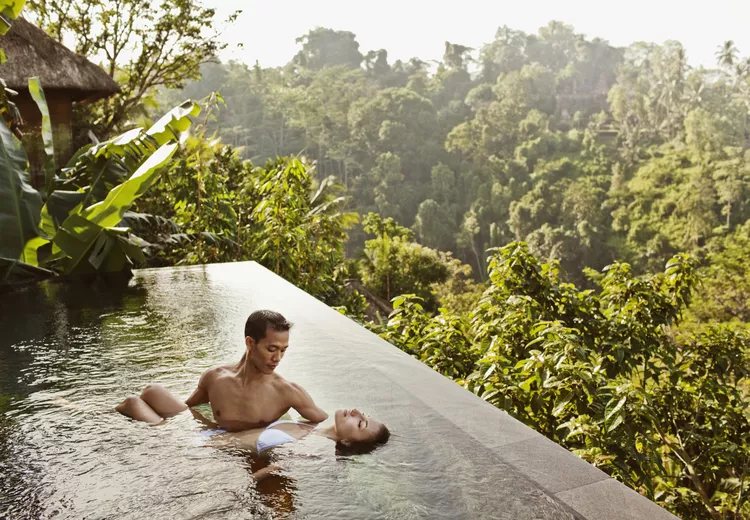Summary of Wellness Tourism
- Understanding Wellness Tourism
- Exploring Wellness Tourism Overseas
- The Role of Specialized Travel Advisors
- The Rise of Wellness in Hospitality
- Defining Wellness and Its Broader Implications
Wellness tourism places your health and well-being at the heart of your travel experience. Trips centered around wellness should encompass healthy cuisine, physical activities, spa treatments, and opportunities to enhance your spirituality and creativity. This approach aids in learning how to care for yourself more effectively, both physically and psychologically. The most accessible form of wellness tourism in the United States is a getaway to a destination spa, such as Canyon Ranch or Rancho la Puerta.
Currently, numerous U.S. destination spas refer to themselves as spa resorts or luxury wellness resorts due to online search preferences. Nonetheless, the overall environment is designed to foster your wellness, minimizing temptations to indulge excessively after engaging in enjoyable activities. Although occasional indulgence isn’t a problem, a wellness trip is built on the intention of promoting your health through carefully chosen food and activities.
Wellness Tourism Overseas
Many individuals who appreciate a wellness spa vacation are repeat visitors as it fulfills their needs in ways unmatched by other holidays. Furthermore, an increasing number of travelers are venturing abroad to seek wellness experiences that broaden their cultural perspectives. For example, Ananda in the Himalayas is a destination spa in India where guests can experience authentic Ayurveda treatments, take yoga classes in the land of its origin, and enjoy the tranquility by the Ganges at dusk. This stunning setting, a former maharaja’s palace, spans 100 forested acres.
In Thailand, Chiva-Som presents a beach-front destination spa that merges ancient Eastern therapies with Western diagnostic practices, revitalizing the mind, body, and spirit. Offering tailored programs and treatments encompassing detox, weight management, and stress relief, Thai massage is a notable specialty.
Using Specialized Travel Advisors
While booking directly with properties like Ananda in the Himalayas or Chiva-Som is convenient, consulting a travel advisor specializing in health-focused travel for group or individualized trips may offer additional benefits. Linden Schaffer from Pravassa believes every journey should include stress management, cultural immersion, physical activity, spiritual connection, and food education. The format varies by location—options like Santa Fe, Spain, Bali, Ojai, Costa Rica, and Thailand offer diverse experiences—including staying at boutique properties often overlooked.
Beyond focused wellness vacations, an increasing number of hotels are integrating wellness programs to support business travelers in maintaining a healthy lifestyle while away. For instance, the MGM Grand in Las Vegas has introduced wellness rooms and suites; Canyon Ranch’s SpaClub in Vegas includes “wellness professionals.” Notably, the InterContinental Hotels Group, which owns Holiday Inn, has launched its Even Hotels—prioritizing wellness in food, exercise, work, and rest in multiple locations nationwide.
According to estimates by SRI International for the Global Spa & Wellness Summit (GSWS), wellness tourism currently represents a remarkable US $494 billion market.
The World Health Organization defines wellness as a comprehensive state of physical, mental, and social well-being. It significantly surpasses simple absence of illness, emphasizing proactive health maintenance and enhancement. Wellness emphasizes activities and attitudes that prevent illness, improve health, elevate life quality, and facilitate optimal overall well-being.
The concept of wellness tourism significantly expands the appeal of medical tourism, which often conjures images of plastic surgery but also encompasses dental care, knee replacements, and other medical interventions. Many consumers opt for these medical journeys, drawn by lower costs or better treatment accessibility.
People are increasingly drawn to travel that benefits either themselves or others, whether through wellness tourism, voluntourism (which incorporates a philanthropic aspect), environmentally conscious (eco-travel), or culturally immersive educational travel.





